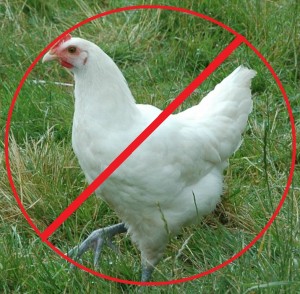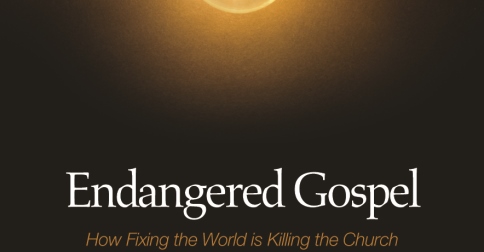 Facebook is abuzz today (as it has been for over a week) with people showing their support or their distaste for Chick-Fil-A and president Dan Cathy’s recent statement of opposition to gay marriage. I’m not going to take sides here, but I do want to challenge those who identify as Christians with the question of whether boycotts are ways of engaging those with whom we disagree that fit with our call to follow in the way of Jesus?
Facebook is abuzz today (as it has been for over a week) with people showing their support or their distaste for Chick-Fil-A and president Dan Cathy’s recent statement of opposition to gay marriage. I’m not going to take sides here, but I do want to challenge those who identify as Christians with the question of whether boycotts are ways of engaging those with whom we disagree that fit with our call to follow in the way of Jesus?
A boycott is, in essence, returning evil for evil; you have said or done something that has hurt me, so I will retaliate at your economic existence by withholding my business and encouraging others to do likewise. I grew up in the thick of evangelical culture in the 1980s and it seems like we were always being asked by the right-wing powers that be to boycott this company or that company because they did something that offended our “family values.” And of course, the boycott has been used as a tool by those on the progressive side of the spectrum too, as we see in the current Chik-fil-A situation.
There are some very deep divides in American culture, as Bill Bishop has explored in his 2008 book The Big Sort: Why The Clustering of Like-minded America is Tearing us Apart. The culture wars have been raging for several decades now, and the boycott is one of the key tactics of both sides. The boycott and the anti-boycott show of support only serve to deepen divides between us and our neighbors of differing perspectives, as we come to see our identities first in our ideology, rather than as a human created in the image of God.
As I was beginning to write this post, I stumbled on my friend Branson Parler’s excellent article “Why eating at Chick-fil-A isn’t the same as taking communion,” which develops the above points more eloquently than I could do. The heart of Branson’s argument (though I encourage you to read the full article) is:
Christ’s presence produces peace that breaks down the dividing wall of hostility, in the 1st and the 21st century. In response, we can disenchant the sacramental world created by the culture wars by simply carrying on with our activities in such a way that doesn’t compute with the logic of the ideologies of both left and right.
So, if I am hungry for a chicken sandwich, I will eat at Chick-fil-A. What is the meaning of this? Simply that I’m hungry for a chicken sandwich. If I want to watch the Muppets, I will. What is the meaning of this? Simply that I find the Muppets amusing. We typically do not ask about the religious affiliation of our plumbers, grocers, accountants and mechanics because we recognize the reality of common grace. In a similar way, we should recognize that the political positions of our retailers, book-store clerks, Internet providers and pharmacists are not as big of a deal as we are often led to believe.
In the end, being pacifists in the culture wars may turn out to be the best way to embody the Christian worldview. Instead of worrying about winning, we can start to truly seek the shalom of the culture to which we’ve been sent.
Although I agree with Branson’s theological interpretation here, I have to wonder about the implicit economic vision: are we bound to the self-narrated economics of consumerism? (i.e., if I want to do this, I will do it, regardless). Yes, there is freedom in opting out of the culture wars, but I would argue that we use that freedom to begin imagining and implementing local economies of care, where we know the people who produce our food and goods, and where each transaction is one of mutual care: the seller expresses care by offering quality goods at a fair price, and we return the care by paying that fair price (or even more). Neither side is out to gouge the other. As we abide over time in these local economies of care, we will build friendships in which we can eventually, and hopefully more peaceably, discuss deeply held political values. This is a slow, local and conversational approach, it focuses on making friends and not enemies.
Yes, let us lay down the boycott and the other weapons of the cultural warrior, and let us begin to make friends instead of enemies, beginning in our very own neighborhoods. Let us ask ourselves the question: what is our primary identity? It is in the Right or the Left? Or is it in the People of God that have been called in Christ?












